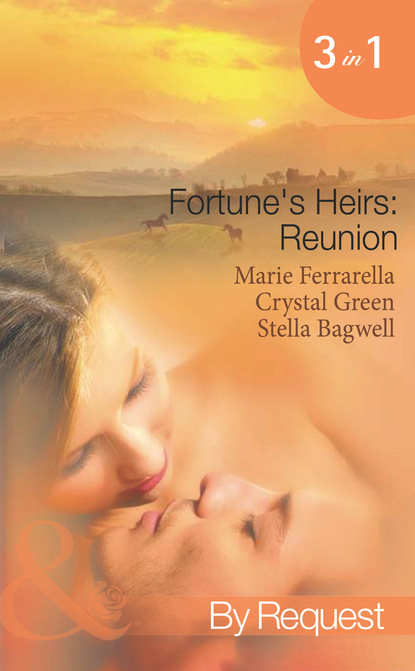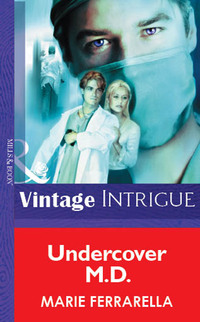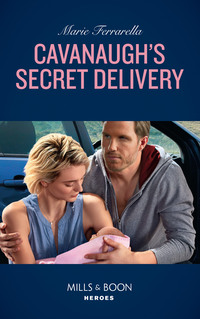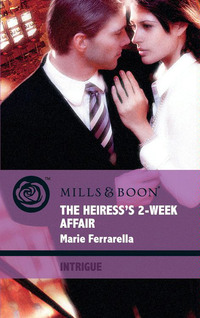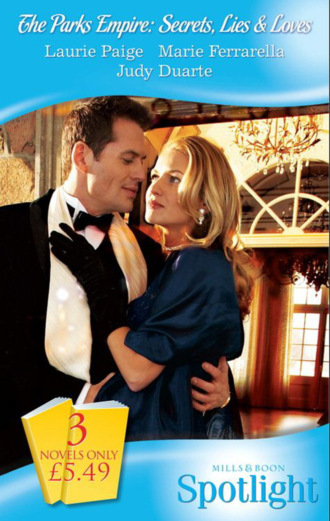
Полная версия
The Parks Empire: Secrets, Lies and Loves
She glanced at him, then shook her head. “A fellow teacher, actually. She’s a friend of a friend of the artist who owns the other town house.”
“Miss Hanson,” Stacy informed her father.
“Yes. Rachel and my…”
Again the pause, as if she wasn’t sure if she should disclose this much, Cade noted.
“Rachel and my brother thought I needed to get away.”
“From Denver?” he asked.
She nodded.
“Why?” He realized he sounded like a lawyer before the court, trying to wring information from a witness.
“My…my mother died after a long illness. In the winter. She loved the spring in Colorado and the wildflowers. She used to say flowers and children were the only consolations life offered.”
This last part was said with such sadness, Cade felt like a heel for making her speak of it. “I’ve caused you pain,” he said. “I’m sorry.”
“No, no, it’s okay.” Her smile bloomed once more. “I thought it was time for a change, too. Meeting Stacy today convinced me this move was the right thing.”
Again he had an overwhelming sensation of déjà vu, as if they’d talked like this before, as if they’d shared secrets, laughed together. It was damned odd.
“The rolls are ready,” Stacy announced.
Cade served the rest of the meal, then they opened a can of chocolate icing and finished the cake. “Let’s sing Happy Birthday,” Stacy requested.
“It isn’t anyone’s birthday,” he reminded his daughter.
“Mine was back in the spring,” Sara told them. “No one made me a cake, so this can be a belated one.”
He thought of all she didn’t say—her grief over her mother, the loneliness in those eyes, the fragile quality that brought out something protective in him.
“Great,” he said. “Stacy, start us off.”
Stacy began. “Happy birthday to you…”
He joined in, harmonizing with her childish soprano. Their guest looked at him in surprise. He smiled, pleased that he’d managed to break through the reserve that surrounded her.
“How old are you?” Stacy demanded while he cut the cake, then served their guest first.
“Twenty-nine.”
“Stace, you’re not supposed to ask a woman her age,” he chided.
“Why?” she asked.
“Yes, why?” Sara echoed.
He pretended to think. “Darned if I know,” he finally said. “Someone told me it was rude, that women don’t like admitting how old they are.”
“We don’t mind being old, do we, Sar—Miss Carlton?”
“Not at all. Age makes one wiser, I’ve heard.”
A full, unforced smile appeared on her sensuous lips. Cade couldn’t take his gaze from them. “I’ve seen that smile before,” he said. “Where have we met?”
Sara was unprepared for the question or his intent perusal. After twenty-five years, she hadn’t expected him to make any connection to her at all. She tried to maintain the smile, but it was impossible.
“Long ago,” she said in a low voice, “we were in kindergarten together. You and I and your twin sister, Emily. Here, in San Francisco.”
His eyes narrowed as he stared at her. “Yes,” he said after a thoughtful silence. “Sara Carlton. Yes. That explains the eyes. And the smile. I knew I’d seen them somewhere. I had a terrible crush on you. Then one day you left without a word. I was heartbroken.”
“We moved away.”
He nodded. “I remember. Your father died. A boating accident or something,” Cade said.
Or something, Sara echoed to herself, that something being the murder of her father by his. She bit the words back with an effort. She hated subterfuge and lies, but in this case it was necessary.
“A hard year for you,” he murmured. “For everyone,” he added on an introspective note.
His smile was sad as well as sympathetic. She knew his mother had been sent away “for health reasons” later that same year.
She rejected pity for him and his family. After all, she was here for revenge….
No, it was justice she sought. She was here to see that Walter Parks paid for his crime.
Chapter Two
Sara sat on the sofa in the den Thursday night and watched a bead of moisture gather, then meander down the window, gaining speed as it collected more water.
No rain fell. With darkness, the fog had rolled in off the ocean and tumbled over the low hills like spirits released on the unsuspecting city folk. It condensed on the panes and formed the droplets.
Inside, she had a fire going in the grate, which held artificial logs, the flames fed with gas rather than wood. But it was still cozy and cheerful.
She needed cheering.
During the day, her first full one in the city, she’d kept busy. There’d been groceries to buy and errands to run, then she’d walked over to Lakeside School for the Gifted to be sure she could find it come Monday.
The private school was housed in elegant brick quarters, which had been a donation from the school’s founder in memory of his son, much as Stanford University had been established.
On her walk along St. Francis Boulevard, she’d passed the California Scottish Rite Temple and a forest preserve called the Sigmund Stern Grove. Directly across the street from the preserve, she’d found the school.
She’d also discovered that street names often changed at a cross street for no discernible reason. Junipero Serra became Portola Drive which became Market Street as it neared downtown. However, the area was interesting and lovely, with the ocean, several parks and golf courses, plus three universities within a two-mile radius of her temporary home.
Like Rome, San Francisco was built on hills. Mt. Davidson at nine hundred and twenty-seven feet was the highest peak in the vicinity while Twin Peaks, a short distance north of it, was next at nine hundred and ten feet. They were nothing like the rocky, snow-covered crags near her old home in Colorado.
During the fall and winter, she’d often sat for hours and gazed at those lofty spires as she’d waited for her mother’s life to be over….
“Sara?” the feeble voice said in a whisper.
“Yes, Mom?” Sara rose from the hospital chair, which also made a bed, and went to her mother’s side. It was the day after Christmas.
Marla Carlton gazed intently at her daughter. “You remember everything I told you? Kathleen and the twins…they know, don’t they?”
Sara took her mother’s restless hand. It felt like a skeleton’s, it was so thin and bony now. “Yes, they know. We all know.”
“Find my brother. Find Derek.”
“He’s here, Mother. He arrived this morning. He’ll be back at visiting hours.”
“He knows…he saw…everything.”
“Shh, don’t talk. Rest now,” Sara urged.
It hurt to look at her mother. The vestiges of her former beauty were still visible. Full, sensuous lips. An enchanting smile. Black hair threaded with gray but still thick and luxurious. Green eyes with long black lashes. A petite, lovely Cleopatra once, she was ravaged by illness more than time. At fifty-five she was dying of heart disease and there was nothing the doctors could do.
Pain speared through Sara at the thought. As the oldest of her siblings, she’d taken on the responsibility for the family during her growing years. Their mom had never been well. Depression and dark moods had plagued her.
Now Sara understood why. Marla had carried a horrible burden in her heart for twenty-five years, ever since her husband had disappeared from a yacht off the coast of California. Now Sara understood why she and her sister were snatched from their familiar world in San Francisco and taken to Denver to a life of struggle and uncertainty.
“Derek was there,” Marla said, clutching Sara’s hand as if to hold her captive to the tale the daughter had already heard more than once of late. “He saw Walter….”
Sara bent close as her mother’s eyes closed and her words lapsed into agitated mumbling. The story she’d heard during the past week had been a strange, terrifying Christmas gift—a disclosure of greed, murder and ruin visited on her father by the man who was supposed to be his friend and business partner in the diamond trade.
Walter Parks.
The name conjured up unspeakable evil in her mind as she stared into her mother’s pale face. The man had threatened Marla with her life if she didn’t disappear from San Francisco forever. He’d threatened the lives of her children, Sara and Kathleen, too. He hadn’t known Marla had been pregnant with the twins, Tyler and Conrad.
Or that those two unborn babies were his—
The ring of the doorbell startled Sara out of the painful memories. It was almost nine o’clock. Maybe her brother was making an appearance at last. She’d expected him yesterday.
“About time,” she scolded when she opened the door and saw that it was indeed Tyler.
He was still in the suit he wore as a detective with the police department. Giving her a grin, he swept her into a bear hug.
It never failed to amaze her that the twins she’d adored—at five, she’d thought they were some sort of living dolls made especially for her—had grown into men, six feet tall with broad shoulders and muscular bodies.
“Oomph,” she said to let him know he was squeezing the breath out of her.
“Sorry, sis,” he said, not at all apologetic. “God, it seems like years. I’m glad you’re here.”
“Me, too. I think.”
Their eyes met in grave acknowledgment of the task they’d set for themselves before leaving Denver—find their uncle, sole witness to the crime against their family, then present the case to the local district attorney.
“The den is through here.” She led the way.
His low whistle told her he was as impressed by the town house as she’d been. Tyler had arrived in town a few months ago, landed a job as a police detective and found a best friend in Nick Banning, his partner on the force.
Nick was responsible for the connections that had led to her living in the town house, right next door to Cade Parks, son of the man they were after. Step Two of their plan was now in action.
The first step had been for both of them to get jobs here. The second had been to find a way to infiltrate the Parks family. What better way than to live next door to the oldest son, who was also the Parks family attorney?
“Pretty nice digs,” Tyler said, settling in one of the easy chairs before the hearth. “You should see the place Nick found for me.”
His wry laughter dispelled any impression of envy. Her baby brother didn’t waste time on useless emotions.
“Irish coffee?” she asked. “There’s a latte machine, if you’d prefer that.”
“Can you make it both?”
Sara foamed nonfat milk into fresh coffee, then added a generous splash of Irish cream liqueur. After placing a stirring stick coated with brown sugar crystals in each tall mug, she carried them into the den where Tyler waited, his eyes, green like hers, fixed on the flames leaping over the fake logs.
Marla had left her stamp on all her children, bequeathing her black hair and cat eyes to each of them, along with a megawatt smile and a metabolism that enabled them to eat anything and stay thin, a fact their friends often lamented.
“Have you met your neighbor?” Tyler asked.
Sara was drawn out of her introspection. “Yes, yesterday. Cade’s daughter, Stacy, is friendly and inquisitive. As soon as she saw me weeding the front yard, she came over and demanded to know if I was the new gardener and what had happened to Mr. Lee.”
“Cade?” Tyler questioned, at once picking up on the use of the first name.
“He and Stacy had me over for dinner last night. They made a surprise cake. And sang happy birthday to me.”
Tyler muttered an expletive. “I forgot about your birthday.”
“That’s okay. Some friends in Denver took me out for a gala celebration.”
“You’ve lost weight. Is this going to be too hard on you? Nick and I can handle the investigation.”
“No, no. I want to do it. I want to find out the truth about our father and his partner.”
When Tyler’s eyes flicked to her with more than a little irony in their depths, she recalled her father wasn’t his father. She still found it hard to believe that the man they sought to bring to justice was father to the twins.
“Dear God, what a mess, if this is all true,” she murmured.
“Didn’t you believe Mother’s story?” he asked in his blunt fashion. His gaze bored into her as if he dared her to deny it. Tyler was always direct.
“Yes, but we can’t prove anything without finding the uncle I don’t recall ever seeing until just before her death. How did he know she was sick? He had to have been keeping track of her somehow. Could they have corresponded all these years and Mother never told us?”
“Who knows? Mother could be as silent as a sphinx when she chose. Derek Ross is one hell of an elusive relative,” Tyler admitted. “All I could find out was that after the funeral his flight from Denver ended in San Francisco. He isn’t listed on the Internet or in any telephone book, hasn’t been called to jury duty, gotten any traffic tickets or been delinquent on his taxes that I can find.”
“I was thinking of those last days in the hospital earlier tonight, just before you arrived, in fact,” Sara said in a pensive tone. “We all reacted differently.”
“Yeah,” Tyler agreed in disgust. “Kathleen, the mystery writer, ran away to New York after the funeral. You would think solving a twenty-five-year-old mystery would be right up her alley.”
“And Conrad wouldn’t budge from Colorado. They both want justice, but they act as if they’re in denial about the whole situation.” She stirred the latte, then took a sip of the hot brew, feeling its warmth flow all the way to her tummy.
“It’s pretty hard to realize the man you thought was your father wasn’t in actuality. And that the man who is really your sire killed the one you thought was. Man, try explaining all that to a jury,” he finished grimly.
“Are you going to confront Walter Parks about your paternity?”
“Yes.”
“When?”
“Soon. I want to see the bastard’s reaction when he realizes his sins have come back to haunt him.”
“Tyler, be careful. He’s killed once—”
“That we know of,” Tyler interrupted.
“It’s probably easier the second time,” she warned. Anger and grief brought tears to her eyes. “Sometimes I’m so filled with hate,” she said. “Other times, I think it might be better to go away and forget everything. It was so far in the past and there are so many innocent people who may be hurt by bringing it into the open.”
Tyler studied her for a long minute. “Like your neighbor?” He gestured toward the town house in the other side of the duplex.
“Like his little girl.”
“Why should they get off scot-free?” he demanded. “Our family didn’t. Justice will be done.” He slapped the ball of his fist down on his knee.
Tension filled the beautiful town house which had been arranged in feng shui fashion for the maximum tranquillity of the human soul.
“Justice can be harsh,” she murmured. “There’s an ancient Chinese saying that sounds as if it’s a blessing, but it’s really a curse.”
“What’s that?” he asked when she paused.
“‘May you live in interesting times.’ To the sages, interesting times were those filled with chaos and troubles. Their greatest wish was for serenity. I think, little brother, that we’re in for some interesting times.”
He finished the drink and stood as the clock on the mantel chimed ten times. “Good. We’ll see who’s standing when the Parks house of cards comes tumbling down.”
After she saw him out, watching as his taillights disappeared around a corner, Sara stood at the door for another minute. Down the street, the fog encircled the streetlight in a dim haze. The faint glow gave the promise of warmth and succor to the lone man who walked toward it with quick strides. He paused at the corner and looked over his shoulder, then hurried on.
She wondered what demons he feared might come after him out of the swirling dampness of the night.
On Friday, Sara reacquainted herself with the city. Not that she remembered much from twenty-five years ago, but she tried. She visited the zoo and took the scenic drive in a loop around the city and surrounding urban streets.
One of the two windmills near the old Cliff House spa resort had been restored. The fresh and saltwater pools had long fallen into ruins, but the house remained, having been rebuilt a couple of times due to fire. She ate lunch at the restaurant and knew she’d eaten there in her childhood, although she couldn’t dredge up a specific occasion. Perhaps someone’s birthday.
Past the windmill, facing the ocean, the houses were being gentrified. New construction was going on in the area. None of that was familiar to her.
However, another neighborhood, down the Great Pacific Coast Highway toward Half Moon Bay, brought back sharp, poignant memories. There, in an expensive enclave of homes on five-acre estates carved from sage brush and artichoke farms, she located her former home with the help of an address she’d found in her mother’s possessions.
Standing at the locked gate of the imposing but run-down mansion, images flooded her mind. She’d been riding a tricycle on the sidewalk. Her father was yelling for her to stop as she gained speed on the downward slope. She’d shot through the open wrought-iron gates and gone off the curb in a tangle of arms, legs and tricycle wheels and had a terrific crash on the pavement.
Her parents had taken her to the emergency room for a broken collarbone. She’d tried not to cry, but it had been the worst pain she’d ever experienced.
Running her fingers over the long-repaired bone, she reviewed her life since that time. Her mother’s fears. Her weeping. Moving from one cheap apartment to another. Settling at last in Denver. Her own childish delight in the snow, which she’d never seen, and the birth of the twins. Another delight for her, but more pain for her mother.
The mansion was unoccupied and in disrepair. The old man who had bought it by paying the back taxes had lived here alone after his wife died. He’d passed away a few years ago, and his children were in a battle over the property, according to Tyler. So the place sat empty and forlorn, looking like an aging beauty waiting for her fickle bridegroom to return and make things right again.
“May I help you?” a voice asked, startling her.
A policeman had stopped at the curb and called to her from the open window of his cruiser. A stab of fear hit her. She reminded herself she wasn’t doing anything wrong.
Sara shook her head. “I used to live here. A long time ago,” she added when he looked skeptical. “Since I was in the city, I decided to see if I could remember the place.”
“This house has been empty a long time. I try to keep an eye on it. An unoccupied house is an invitation for drug dealers to move in.”
“That would be terrible.”
“You had better move on,” he told her, but in a kind manner. “Your staring has made the lady down the street nervous. She reported someone was ‘casing’ the estate. That’s why I came by.”
“I’m sorry. I didn’t mean to cause trouble,” Sara told the officer.
She walked back to her car, parked at the curb near where she’d fallen so many years ago. She felt close to tears as the nostalgic mood lingered.
Heading for the town house in her old but dependable vehicle, she had to laugh. Obviously she and her family had fallen on leaner times since their days in the mansion. The policeman would probably tell his fellow cops about the encounter and spend the afternoon painting scenarios of what had happened to them. Someone at the station might even recall the disappearance of Jeremy Carlton and the mystery surrounding his death, presumably by drowning, but the body was never found.
Sara had questions of her own. What had happened to her father’s business? His money? How had her mother managed with four children and no job?
The latter was answered when she and Tyler had discovered funds in a brokerage account after their mother’s death. She’d lived very frugally off the interest, using extra money only during emergencies.
Sara thought her mom would have been better off if she’d had to work, to get out and interact with people so that she wouldn’t spend hours alone in the tiny rental house where they’d finally settled in a suburb of Denver.
At the town house, she pulled into the short driveway and turned off the engine. Stacy was sitting on the marble stoop, chin in her hands, elbows propped on her knees. She smiled broadly when Sara came up the walk.
“I ringed…rang your doorbell but you weren’t home,” she said, moving over so Sara could sit.
Sara enjoyed the coolness of the stone through her slacks as she joined the child. By midafternoon the temperature had climbed into the upper seventies and the shade of the alcove was nice after her day of exploration.
“I’ve been on the scenic tour of the city,” she told Stacy. “I saw Fisherman’s Wharf and the Golden Gate Bridge and had lunch at Cliff House. My table was by the window so I could see the ocean.”
“Did you see any ships?”
“Yes. A huge one. It looked like an oceangoing barge.”
She was rocked by a sudden image of herself at four. She was standing by a window and looking out at the sea, wondering where her daddy could be and why he’d gone off on a boat and when he was going to come back.
With grave certainty, she knew she’d been looking out the window of her bedroom in the mansion—
“Do you have a headache?” Stacy asked.
Sara dropped her hand—she’d been unconsciously rubbing her temple—into her lap. “No, just thinking.” She smiled to show she was all right.
“My mommy used to have headaches. She’d tell Daddy to leave her alone, she had a headache—whenever he was mad at her.”
Sara was startled by the grown-up words coming from the child’s mouth. Surely Stacy had been too young to remember what sounded like frequent quarrels between her parents.
But maybe not. Vague recollections were coming back to her from her youth now that she had returned.
A premonition that she and Tyler should leave the past behind and get on with their lives pierced her heart like a hot spear. Surely there had been enough unhappiness back then to last all of them a lifetime.
Looking at young Stacy, Sara wondered if bringing the ancient case up, assuming they found their missing uncle and solved the murder, was worth it in light of the pain it might cause innocents like this child.
“Daddy!” Stacy yelled, jumping up and running to the end of the sidewalk.
Cade Parks pulled into the garage on his side of the house, then joined his daughter, coming through the gate and scooping her into his arms. “What are you doing sitting out front? You know you’re not supposed to do that.”
“Tai said I could wait for you. You’re late,” Stacy said, turning the reprimand on him.
Sara couldn’t help but grin. She wouldn’t say the daughter was smarter than her dad, but she certainly had learned the rudiments of outfoxing the main male in her life. Sara pitied the men in Stacy’s social circle when the little scamp grew up.
“Huh,” her dad said, then added, “Sorry I’m late. Grandpa called at the last minute. You know how hard it is to get off the line when he wants information.”
Grandpa. That would be Walter Parks. Well, Stacy did have another grandfather, but according to Tyler, the families didn’t mingle much, except for delivering the girl for an occasional visit.
Stacy giggled, then held her face up. To Sara’s amusement, the big city lawyer solemnly rubbed noses with his daughter, then settled on the steps with her in his lap.
“Nice out today,” he said.
“Yes.”
“Did you go sightseeing?”
“Actually, I did.”
Tai came out the front door. “I’m off to the library. See you Monday, pie face,” she said to Stacy, leaning down to plant a kiss on the child’s forehead.


